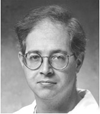In the1970s, science fiction author Larry Niven envisioned a world where the rich were so anxious to procure organs for transplantation that the death penalty was expanded from murder to traffic infractions(1). The liberal application of the death penalty and the likely unconsented harvesting of organs from the condemned in China is a variant of the world that Niven envisioned (2). Multiple sources report that the timing of executions in China, as well as the way they are carried out (a single bullet into the back of the head of the condemned) is intended to optimize organ recovery. Niven also wrote stories of criminal gangs that kidnapped people and sold their organs to those desperate for a transplant. He termed this practice ‘organlegging.’ For more than a decade, the western press has run stories of organ selling and organ theft in other countries, most commonly 3rd world countries such as Brazil(3). Such stuff has been fodder of supermarket tabloids and internet conspiracy theorists far more than serious news outlets.
The desecration of the dead and profiteering from the sale of their tissues has been a source of sensational news in recent years. It is generally accepted that taking tissue from the deceased without the knowledge or consent of their families is a grisly and heinous crime, to be punished with severe criminal penalties, as in the case of the Michael Mastromarino and his company, Biomedical Tissue Services(4). Please note, BTS had two sets of victims, the families of the dead, and the recipients of the hopelessly inferior tissues BTS was selling. The most disturbing part of this story is that this is not a story of a couple of sleazeballs in the basement of a single funeral home, but a collection of funeral home directors and employees in 4 cities in at least 3 states. A lot of people had to look the other way for years. For the medical profession, the saving grace in this story is that none of the principles was a health care professional.
Patients with end stage organ failure are miserable, and many become desperate for the transplant that could improve their everyday existence. Those with means become willing to expend enormous sums of money to jump to the head of the line, even in first world countries. The purchase of organs from living donors is explicitly illegal in most of the western world; any market that facilitates the transfer of organs from living donors to paying recipients is (at least presently) properly viewed as a black market. The existence of such black markets is the inevitable consequence of any schema that allocates organs by needs instead of means; where a need based allocation system is utilized instead of a free market. Recent news items shed some light on this, the black market of organ donation.
The FBI recently arrested a man (previously mistakenly identified by myself as a Rabbi) in New Jersey who is alleged to have brokered the sale of kidneys from donors in Israel to recipients in the US. Press reports represent that he purchased the kidneys for $10,000 from the donors, and was selling them to the recipients for $160,000 (5). They also imply that he had been in this unusual line of business for at least a decade. A few observations are in order:
- we don’t in fact know how many times the accused successfully orchestrated such a transfer. It could be once, it could be dozens of times.
- even if he managed to pull it off once, it would have required an entire network of health care providers to look the other way. Quite seriously, the surgeon and transplant coordinator (and likely the transplant nephrologists as well) had to be aware that this was an ‘international’ kidney donation that circumvented all of the usual channels.(‘so where did you say this kidney came from?')
- as with all black-markets, the broker is the one who makes all of the money. In this instance, maybe more than anyone else involved.
- the Black Market value of a kidney is presently somewhere between 10 and 160 thousand dollars. No one can say what the open market value would be, but it would almost certainly be lower for the buyer and higher for the seller.
Please note, while it is generally agreed that organs should be allocated according to need, I am not opposed to the notion that people should be able to sell their organs. Other physicians have argued the myriad risks and benefits that would arise if this was allowed(6). A regulated market in live kidney donation would likely decrease the cost to the purchaser and increase the compensation to the donor, at the expense of the profit margin of the broker.
Why now, and not 30 years ago when Larry Niven first imagined this? There are likely multiple causes or explanations. The internet, email, and cellular communications have dramatically simplified the logistics. Increased ease arranging the wire transfer of funds and increased international trade have made it much easier to ship anything of value across international borders. Even the increased volume of organ transplantation has made the expertise, equipment, and drugs required to do this more available than ever before. Perhaps more importantly, the community of health care providers, including physicians, may have learned to ‘look the other way’ over the past quarter century.
If the allegations in this case are upheld at trial, it will be proof positive that there is a black market in organs in the US.
1. http://en.wikipedia.org/wiki/Organlegging
2. http://en.wikipedia.org/wiki/Organ_theft
3. http://findarticles.com/p/articles/mi_m1134/is_n8_v107/ai_21191220/
4. http://www.foxnews.com/story/0,2933,199099,00.html
5. http://www.cnn.com/2009/CRIME/07/23/nj.corruption.kidney/
http://www.latimes.com/news/nationworld/nation/la-na-nj-corrupt24-2009jul24,0,922290.story
6. http://jama.ama-assn.org/cgi/content/full/288/13/1640
http://jme.bmj.com/cgi/content/extract/29/3/137
http://www.thelancet.com/journals/lancet/article/PIIS0140-6736%2802%2908030-3/fulltext
 Mitch Keamy is an anesthesiologist in Las Vegas Nevada
Mitch Keamy is an anesthesiologist in Las Vegas Nevada
 Andy Kofke is a Professor of Neuro-anesthesiology and Critical Care at the University of Pennslvania
Andy Kofke is a Professor of Neuro-anesthesiology and Critical Care at the University of Pennslvania
 Mike O'Connor is Professor of Anesthesiology and Critical Care at the University of Chicago
Mike O'Connor is Professor of Anesthesiology and Critical Care at the University of Chicago
 Rob Dean is a cardiac anesthesiologist in Grand Rapids Michigan, with extensive experience in O.R. administration.
Rob Dean is a cardiac anesthesiologist in Grand Rapids Michigan, with extensive experience in O.R. administration.
Although I agree with the gist of your post, I can't find good evidence that the man involved in the NJ kidney case was actually a rabbi (but there were rabbis involved in the money-laundering).
Posted by: Hildy | August 05, 2024 at 08:15 AM
I disagree with your Comments,
First of all, tissue and bones is very important.
Dr. Mastromarino's technology saved my life
and I am 10000% sure that the companies that tested and took the bones tested every single bone before it got to the public.
no company would be dumb enough to give out diseased tissue lets be realistic here.
these are respected companies that trade on the stock market and have helped people and saved lives, i am sure that each bone tissue that Dr Mastromarino submitted along with out tissue companies are alltested.
one day he will be vindicated and we need more companies like biomed to help people like me.
lisa
Posted by: Lisa | August 06, 2024 at 07:43 AM
yes, bones tissue are vital,
mastromarino might of just bent the rules,
but he did help people
the families of the deceased are upset because they didnt see and money out of this for them.
these are the facts.
Posted by: Jason | August 06, 2024 at 11:48 AM
First: I have edited the post to reflect the uncertainty about whether the accused is a Rabbi. It's not central to the issue, and I have no desire to offend anyone over that issue.
Second: No one knows what Mastromarino did or didn't do. We know what crimes he was convicted of, and the evidence that was used to obtain those convictions. Body parts were taken without the consent of the families, and without the usual precautions to prevent the transmission of a variety of important infections.
Grave robbing is a crime. The remains of the deceased are the property of their estate, to be disposed of as they directed, or as their representatives decide. Absent an estate or designated representative, the remains become the ward of the state. Mr Mastromarino and his colleagues had no more right to the remains they took than a grave robber. They may not have harmed the dead, but they offended the sensibility of their families. This matters. Robbing the dead of body parts or material goods is a crime. Anyone brazen enough to commit this crime is also unlikely to ascertain whether the body parts they acquired are either suitable or free of infection. In this case, there are allegations that recipients of this material from BTS acquired Hep C, HIV, and even syphilis, any one of which is a steep price to pay for the tissue obtained.
I'm all in favor of tissue donation from the dead. If our society faces a shortage of such tissue, then our society should confront and solve the problem. If some individuals earn a handsome fortune in the lawful conduct of that business, that's great. But should random strangers be able to harvest body parts from the dead? My vote is no. It is against the law, and will be until it is changed. Until then, anyone brazen enough to do this should go to jail.
Posted by: Michael O'Connor | August 06, 2024 at 02:31 PM
Ok, they are claiming they contracted Hep C, HIV etc. well how many, did contract these disease.
I have CONTRACTED NOTHING, and I can bet that they are a low number of these,
these people are seeking monetary gains.
there is nothing wrong with these people,
Also, Mr. mastromarino is really Dr Mastromarino He will always have my respect.
he saved my life, along with thousands of others.....
He did not rob graves. the funeral directors called him when they had a corpse the funeral directors have custody of the dead bodies not tissue companies, that is the law the family signs over the body and the funeral directors have full custody of the remains until burial, Unfortately for Dr Mastromarino , he never had a trail, so noone has heard this.
One day, he will be vindicated and as time goes by, th eworld will see that he didnt harm anyone.
Posted by: Lisa | August 07, 2024 at 10:33 AM